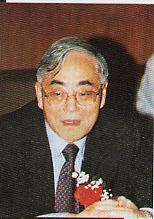
Dong Fureng, male, was born on 26 July, 1927 in Ningbo, Zhejiang. He graduated from the Department of Economics of Wuhan University in 1950, and took his further education as a postgraduate in Moscow National School of Economics. He died in the United States in July, 2004.
He was once a lecturer in the Department of Economics of Wuhan University. He was Director of Administrative Leading Group, Deputy Director, Director and Honorary Director of the Institute of Economics, as well as Vice Dean of Graduate School in Chinese Academy of Social Sciences (CASS). He was a Standing Committee Member of National People`s Congress (NPC) and Vice Director of Finance and Economics Committee of NPC. Furthermore, he was a member of Chinese People's Political Consultative Conference (CPPCC) and Vice Director of Economic Committee of CPPCC. Dong was also hired as part-time professor by several well-known senior education faculties.
Dong Fureng was a noted economist in China. His dedication to academic and education communities during his 50-year academic career was fully acknowledged. His contribution has been most valued since the Reform and Opening up of China. Through analyzing practical economic issues in China, he proposed a series of original views, and quite a lot of them were adopted by Chinese national economic and legislative decision-makers and imposed positive influence toward China`s economic development and reformation. Before 1978, his researches were mainly focused on socialist reproduction and national incomes and his achievements already drew attention from economic academia both at home and abroad, thus receiving high-level recognition. After 1978, he shifted to study issues related to China`s reform and development. He suggested the government abandon the traditional planned economic system and adopt the market economic system. Since that, his researches were mainly involved with the economic problems and development patterns of China in transition.
Through his life, Dong published more than 10 academic monographs and hundreds of academic theses. Meanwhile, he also supervised more than 30 PhDs of Economics.
His achievements won him both fame and honor, and in 1987, he was even awarded an academic medal issued by the French Government.
As the Director of the Alumni Association of Wuhan University, he offered kind concerns about the reform and development of his alma mater. He gave several academic lectures at Wuhan University and cultivated a large group of well-educated PhD students for Wuhan University.